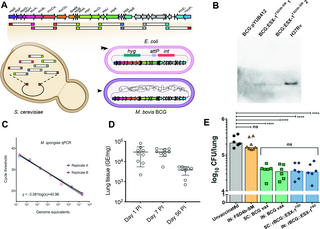Tuberculosis, caused by Mycobacterium tuberculosis, is still one of the world’s deadliest infectious diseases. However, the origins and rise of M. tuberculosis as a successful pathogen are not well understood.
Here, we report the isolation and characterisation of a marine sponge-derived mycobacterium (M. spongiae) from the Great Barrier Reef that has striking genotypic similarity to M. tuberculosis, with 80% average nucleotide identity. We further show by proteomic and lipidomic analyses that M. spongiae shares virulence factors and unique cell wall lipids with the tubercle bacillus.
In spite of these conserved genotypic and phenotypic features, M. spongiae was not virulent in a mouse model of infection, leading us to investigate its potential as a vaccine strain or genetic donor for enhancing the current BCG vaccine for tuberculosis. Our findings contribute to understanding the evolutionary origins of M. tuberculosis and provide further insights into its pathogenesis.


